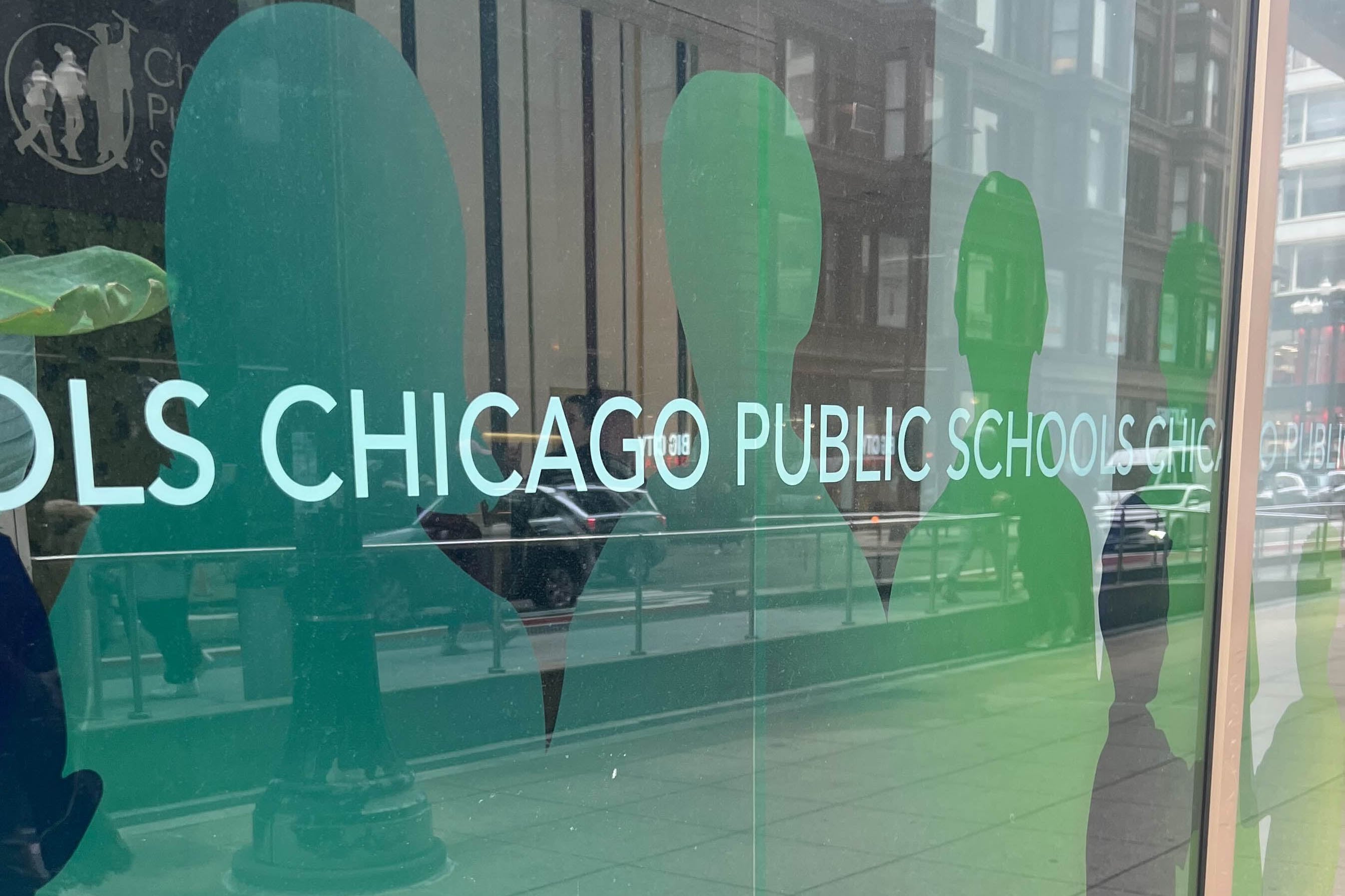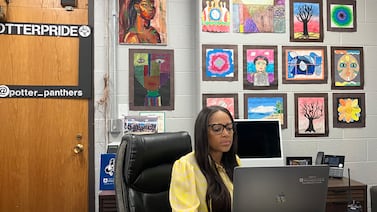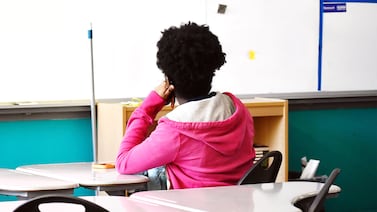Sign up for Chalkbeat Chicago’s free daily newsletter to keep up with the latest education news.
Chicago Public Schools officials defended the district’s new school funding formula Thursday night after some school communities raised concerns about losing staff next year.
The new formula allocates staff and funding based on need and replaces a system that relied more heavily on raw student enrollment. It represents an “important milestone in a long and broad struggle to improve quality of education for all of Chicago’s children, especially those farthest from opportunity,” CPS CEO Pedro Martinez said during a Board of Education meeting held at Chicago Vocational Career Academy High School that drew at least 100 people.
Martinez noted that the change is the product of long-term advocacy from the community for equitable funding to all schools. Advocates for a needs-based formula, which includes the Chicago Teachers Union, argue that such a formula can provide more support for schools that have high needs and are in need of support as they lose enrollment.
But Martinez also acknowledged that CPS is not “going to get everything 100 percent perfect” and is working through budget concerns at some individual schools.
In recent weeks, some educators and parents at selective enrollment and magnet schools have said that their schools’ proposed budgets would include fewer staffers next year under the new formula, which provides at least 10 teachers at every school and increases staff and discretionary funding based on the school’s needs.
Some have also pushed for more transparency around the new formula, asking the district to release each school’s preliminary budget proposal to the public. School budgets are not yet final and must be approved by their Local School Councils. Martinez said the district will release school budgets in late May.
Some schools have reported seeing an increase in their discretionary funding, which can be used to fund more staff and other programs, under the new formula.
But even the Chicago Teachers Union, which supported eliminating the student-based budgeting formula, has concerns.
Christel Williams, the union’s recording secretary, told the board Thursday that the union is concerned the new formula doesn’t specifically guarantee schools certain paraprofessional positions, such as teacher assistants.
WBEZ and the Chicago Sun-Times also reported this week that two-thirds of selective enrollment and magnet schools appear to be seeing cuts in their initial budgets.
Martinez said that no one school type will be disproportionately impacted by the budget changes. Some in the crowd of at least 100 people yelled, “That’s not true.”
Martinez asked the crowd to let him finish, then said: “By far overall what we’re seeing is more equity, especially for our schools with the highest needs, while we’re still protecting our strongest schools,” Martinez said.
But Martinez also said there are “a few outliers,” suggesting that the formula may not have provided adequate staffing for all schools, which the district is working to address.
Board president Jianan Shi asked Martinez to provide the board with an assessment of how staffing changes will impact schools.
“This board acknowledges the uncertainty, the uneasiness some communities are feeling right now, and we hear that,” Shi said.
Reema Amin is a reporter covering Chicago Public Schools. Contact Reema at ramin@chalkbeat.org.







